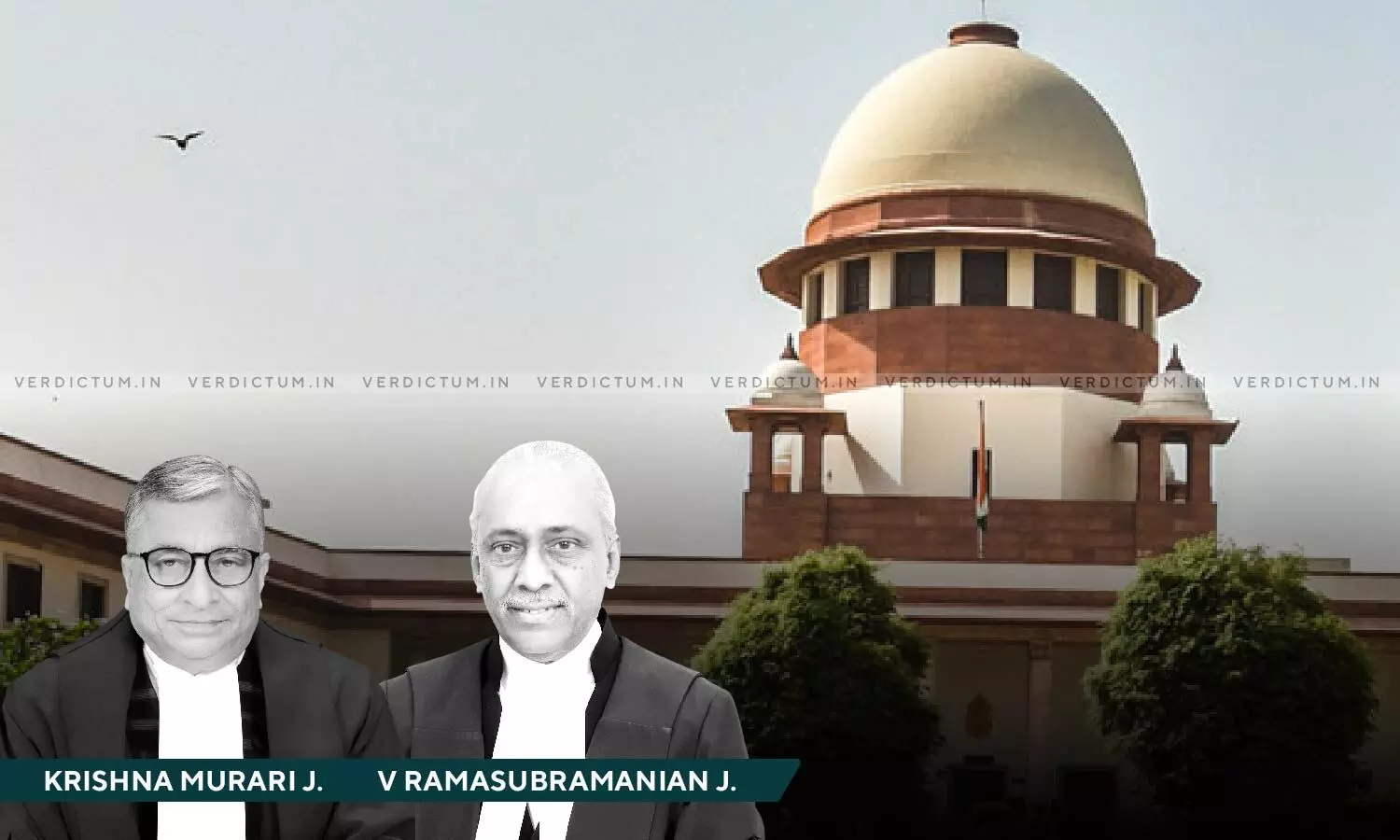
High Court Cannot Override And Impose Its Will When Offence U/s. 138 NI Act Has Been Compounded- SC
 |
|The Supreme Court has observed that when offence under Section 138 of the Negotiable Instruments Act, 1881 was already compounded, the Telangana High Court could not have upheld the Trial Court's conviction and overridden such compounding.
The Bench of Justice Krishna Murari and Justice V. Ramasubramanian observed that “This is a very clear case of the parties entering into an agreement and compounding the offence to save themselves from the process of litigation. When such a step has been taken by the parties, and the law very clearly allows them to do the same, the High Court then cannot override such compounding and impose its will.”
Advocate M. Rambabu appeared for the petitioner and Advocate N. V. Subba Rao appeared for the respondent.
In this case, a complaint was initiated by respondent no. 2 based on which proceedings under section 138 of the Negotiable Instruments Act, 1881 were initiated against the appellants and the appellants were convicted by the Trial Court.
A Revision Petition was filed by the appellants before the High Court and during the course of revision, the parties entered into a Memorandum of Understanding to settle the dispute within themselves.
As per the memorandum, the dispute was to be settled amicably and if it was not resolved then the matter would be referred to a sole Arbitrator. And, that the respondent would be bound to file the compromise petition before the High Court.
Dispute was settled, however, the respondent failed to file the compromise petition. Therefore, the High Court dismissed the Revision petition and confirmed the conviction of the appellants. Aggrieved of the said conviction, appeal was preferred before the Apex Court.
The Apex Court noted that parties were bound by the terms of the settlement entered into between them and in such circumstances the appellants could not have been convicted as the offence was already compounded.
Further, the Court noted that the respondent No.2 was duty bound to file a compromise petition before the High Court, and by doing so he withdrew key information from the High Court, which had led to an unwarranted confirmation of the Appellants’ conviction.
Accordingly, the appeal was allowed and the order of conviction passed by the Trial Court was set aside.
Cause Title- B V Seshaiah v. The State of Telangana & Anr.